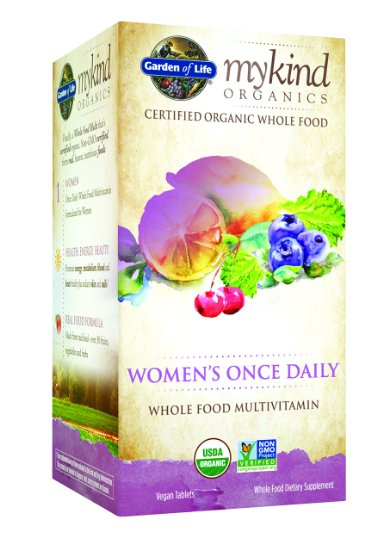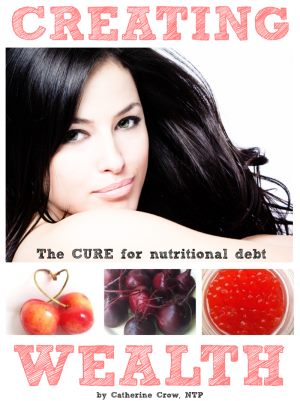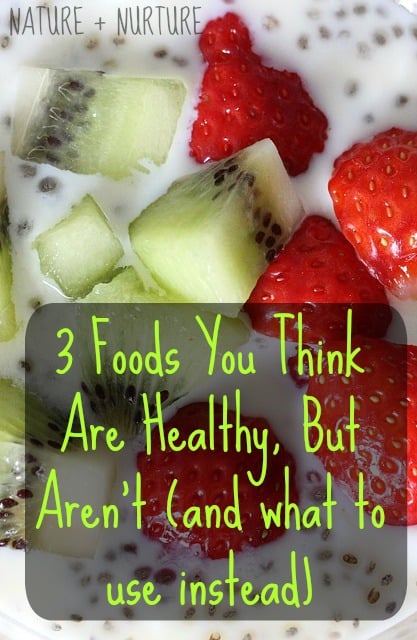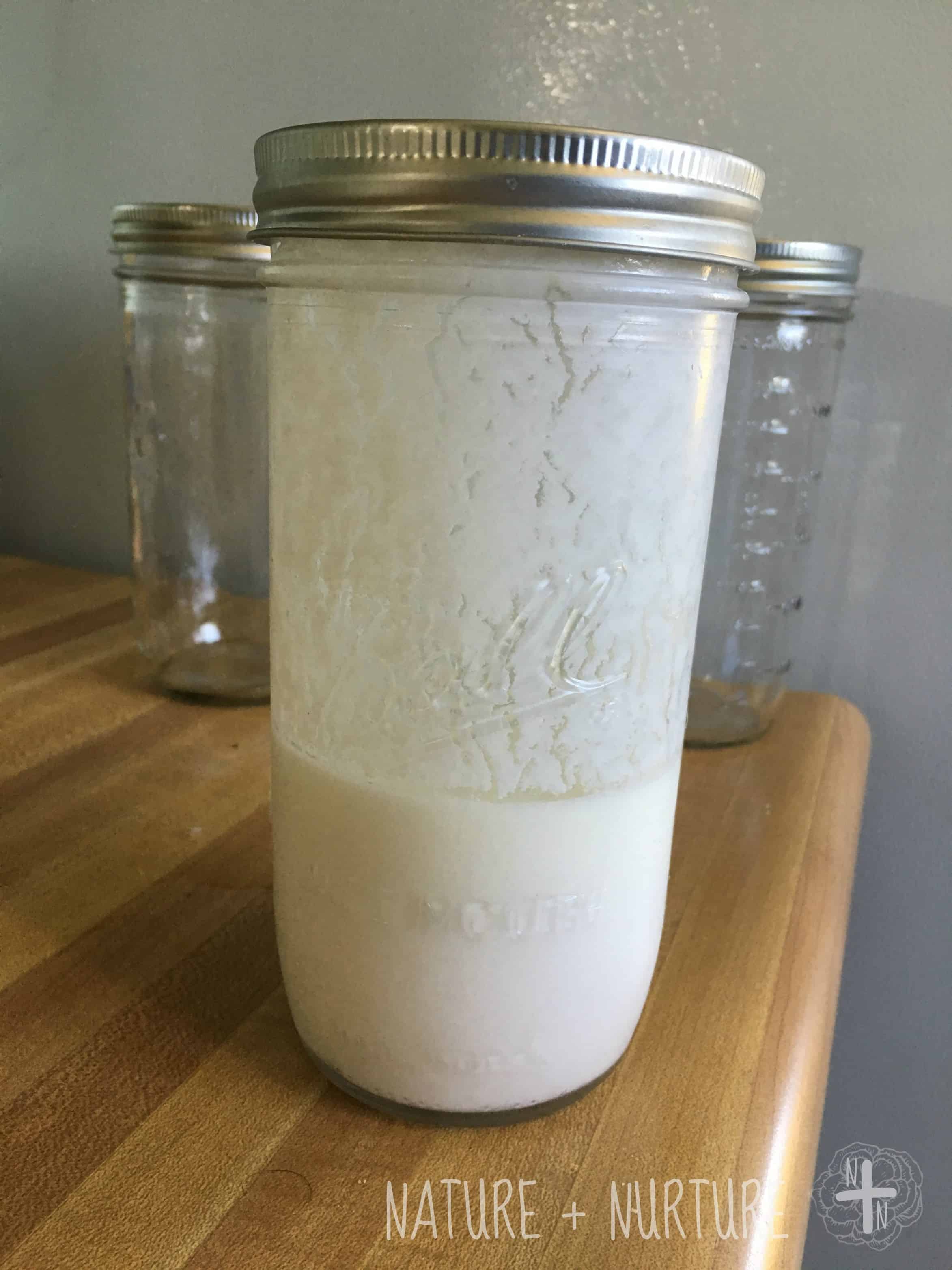Let’s explore 3 specific foods that are often considered healthy, but are actually “junk food.” Then we’ll discover healthy options to try instead!
Confusing. That’s how I’d describe the dietary “advice” given by so-called experts and marketing diet fads.
How do we delineate between what is really healthy and what is junk food?
The only answer is to consult a Higher source when it comes to our health: God. He created nature, didn’t He? Doesn’t it make sense that we would give us everything we need in nature for our physical health?
Problems happen when we listen to and trust anything marketed as “healthy.” If it says gluten-free, sugar-free, or low-fat, that means it’s healthy, right??
Wrong.
Think about it. God created our bodies, and He created the plants and animals in this world as perfect nutrient sources for us. So anything made in a lab or with chemicals added to it can’t be healthy.
If God didn’t make it, watch out. That’s the definition of junk food.
Let’s look at 3 foods that are advertised as healthy but aren’t — and what to use instead.
1. Conventional Yogurt
Our first junk food culprit is sugar-laden yogurt. Yogurt has long been advertised as a health food, and it is. But it all depends on whether there are additives in it and how it’s processed.
The most popular forms of yogurt use nonfat milk. This is a shame, since milk fat is highly nutritious (read more here). Even worse, many contain fake sugars derived from GMO corn, artificial food coloring, and carrageenan or modified corn starch. Some types of fruit flavored yogurt contain no actual fruit!
Read this article by Food Babe called “You Won’t Believe What’s In Your Yogurt” for more information.
When yogurt is messed with and loaded with fake sugars and additives, it pretty much negates any benefit you could receive from it’s probiotic elements.
The best kind of yogurt is from plain, whole milk (preferably organic) with no sweetners or additives. The only ingredient on my yogurt tub in the fridge is “Cultured Grade A Milk.” Not too shabby! You can sweeten it yourself with raw honey or pure maple syrup. Add fresh fruit to make it even tastier. Yum!
You can also make your own yogurt, but I have an even better alternative…
What to use instead: kefir.
Kefir is a probiotic, healthy bacteria powerhouse which is slightly thinner and more tart than yogurt. While yogurt helps keep the digestive tract clean and and supplies food for the healthy bacteria colonies in the gut, kefir is far superior. It actually creates and re-colonizes your gut with the good guys and vastly improves digestive health.
Milk kefir is quite different from yogurt in that the strains contained colonize the intestinal tract and don’t just pass through with temporary benefit. Some of the strains in kefir are aggressive in nature too, which means they attack and destroy pathogens reasserting dominance and control of the intestinal environment. – The Healthy Home Economist
For an in-depth discussion of the comparison of yogurt and kefir, read the full article from The Healthy Home Economist here.
It’s also extremely easy to make a successful batch of homemade kefir – it’s virtually foolproof! Here’s an in-depth article on what kefir grains are (basically a starter to make kefir) and how to make it. Thanks to my mother-in-law, who makes kefir regularly, I was able to get extra kefir grains. If you don’t know anyone who makes kefir to obtain grains from, you can purchase them online here. There’s also a Facebook group for sharing extra kefir grains!
Refrain from buying pre-made kefir from the grocery store – it’s much more beneficial to make your own. All you have to do is take a couple teaspoons of kefir grains, put them in a large jar, and cover with whole milk. Use a plastic or wooden spoon to stir, as metal can deactivate the kefir grains. Cover the jar with a cloth and let it sit at room temperature for approximately 24 hours. The next day, it will have a gelatinous consistency. I like to strain mine through a plastic strainer like this into a clean jar. Voila! Fresh, homemade kefir! My favorite way to use it is added to my morning smoothie.
Note: While writing this article, I was inspired to try plain kefir for the first time without any fruit (I always add it to smoothies). It actually tastes pretty good! It has a slightly sour taste but nothing like spoiled milk – it is quite yummy.
2. Sugar Substitutes
We’ve been conditioned to view sugar as a villain in good health. Read my recent article “Why You Need to Stop Hating On These 3 Food Groups” to learn more. In reality, our body needs a certain amount of real sugar to function properly – particularly the thyroid.
Real sugars – which I will describe shortly – are beneficial and necessary to the body. However, the alternatives to sugar – high fructose corn syrup or calorie-free sweeteners like aspartame and saccharin – are extremely detrimental to health.
Why are these types of sweeteners so popular? Let’s take a closer look at high fructose corn syrup (HFCS) and calorie-free fake sweeteners.
High fructose corn syrup is often used instead of sugar because it is cheaper for companies to use. Dr. Mark Hyman explains the process used to create this food-like substance:
High fructose corn syrup is an industrial food product and far from “natural” or a naturally occurring substance. It is extracted from corn stalks through a process so secret that Archer Daniels Midland and Carghill would not allow the investigative journalist Michael Pollan to observe it for his book The Omnivore’s Dilemma. The sugars are extracted through a chemical enzymatic process resulting in a chemically and biologically novel compound called HFCS. Read full article here.
Since high fructose corn syrup is obviously not found in nature but requires a “food scientist” to create it, I’m staying away. Far, far away.
Artificial sweeteners are extremely popular in many “diet” products because they possess no calories. This is a gold mine for the diet food industry, since many popular diets are based on the premise of counting calories. But is calorie counting actually an effective way to lose weight? According to Nutritional Therapist Catherine Crow in “7 Things NOT to Do When You’re Trying to Lose Weight,”
When you have a chronic energy deficit (fewer calories coming in than going out), over time your body starts thinking that food is scarce. This results in your body holding on to fat as a way to protect itself. Read full article here.
In other words, your body NEEDS calories to be healthy and produce energy. If you’re not providing yourself with enough calories, your metabolism will slow down and weight loss is difficult, if not impossible. Provide your body with the nutrients it needs, and eventually it becomes healthy and your metabolism will starts working again! Trying to “trick” your body by giving it fake foods to satisfy sweet cravings is a losing game.
Also, According to Dr. Oz, artificial sweeteners “trick” your body by making it think it’s receiving calories when it isn’t, which makes you feel hungrier and causes you to want to eat more. They also activate the areas of the brain for addiction, making you feel like you “need” them. Have you ever known someone who had a crazy hard time quitting diet sodas? They’re addictive! New research has even linked artificial sweeteners to cancer – read more in this article by Dr. Mercola.
Bottom line: artificial sweeteners like aspartame (Equal, Nutrasweet), saccharin (Sweet N Low), Sucralose (Splenda), and Acesulfame Potassium (Sweet One, Sunett) are produced in a lab, akin to a science experiment. What are they experimenting on? Us! Not interested.
What to use instead: real sugars found in nature.
This includes ripe fruits, not from concentrate juice, honey, maple syrup, and a bit of organic sugar. These are all beneficial in the context of a balanced, real foods diet. Plus, they taste sooooo much better! For more info on why sugar is important, read this article.
3. Synthetic Vitamins
Ok, so it’s not exactly a junk food (or a food at all), but stick with me here. Vitamins are something we as a nation rely on pretty heavily to cover our bases due to poor nutrition. While vitamins can be beneficial in a certain context, they should NOT be a replacement for a healthy, balanced diet.
Even the natural living community falls victim to this one. It’s so easy to pop the latest “must-have” supplement in hopes of a healthier body, without eating the actual foods that contain that vitamin.
This is something I didn’t understand for a long time: real food is SO much more potent than vitamins and supplements. Why? Because each food contains the perfectly balanced co-factors to complement and help absorb the vitamins contained in it. For example:
When you consume whole foods, such as whole unadulterated milk, for example, the fat of the milk contains the fat soluble vitamins A, D and K2, while the fluid part of the milk contains much of the protein and calcium (do not sell yourself short by drinking fat-free). So in totality, the milk supports the body in a complete sense by supplying what is needed. – Catherine Crow, NTP
I love the way Catherine explains it her article, “Why I Threw Away Thousands of Dollars In Supplements.” She likens supplements to individual ingredients in a cake. If you add a bunch of flour without enough of the other ingredients to balance it, it’s not going to turn out. Check out this information by Daniel H. Chong, ND:
Often, I have been puzzled by the average naturopath or nutritionist who goes on and on about the value of whole foods and how refined foods — having been robbed of all the extra nutrients they naturally come with — are not healthy for you. Then, they go on to prescribe a shopping bag full of isolated, refined vitamins for you to take!
Just like refined foods, these refined vitamins have been robbed of all of the extra accessory nutrients that they naturally come with as well. In turn, like refined foods, they can create numerous problems and imbalances in your body if taken at high levels for long periods of time….
The automobile equivalent of creating a multivitamin would be going to a junk yard, finding all of the separate parts you would need to make up an entire automobile, throwing them together in a heap (or capsule in terms of the multivitamin) and expecting that heap to drive like a car!
Obviously, there is a difference. Science cannot create life. Only life can create life.
– Real or Synthetic: The Truth Behind Whole-Food Supplements
It’s amazing to me how God has included the perfect mix of vitamins, minerals, proteins, carbs, fats, and sugars in the food He created.
If you’re going to take a vitamin because you are trying to regain your health or are concerned you are deficient in something, choose a whole food multivitamin like this instead of a synthetic one. Whole food vitamins utilize extracts from real food with all its factors and co-factors rather than vitamins what are isolated and messed with in a lab.
What to use instead: a balanced diet consisting of fresh, real food from all food groups. If you need an extra nutritional boost, consider taking a real food multivitamin.

Researching for this post has really helped me understand more about the importance of real food vs. junk food and the fact tat there are wonderful, natural alternatives to popular foods that lack nutrients. I hope
If you would like an additional resource to help you make good choices in regards to nutrition and improving your overall health, I highly recommend the e-book Creating Wealth by Nutritional Therapy Practitioner Catherine Crow. It has really helped me regain my nutritional wealth and eliminate fatigue and hormone issues! Check it out here.
Share this post if you found it helpful! Which food swap do you need to make, if any?
With Joy,




Leave a Reply